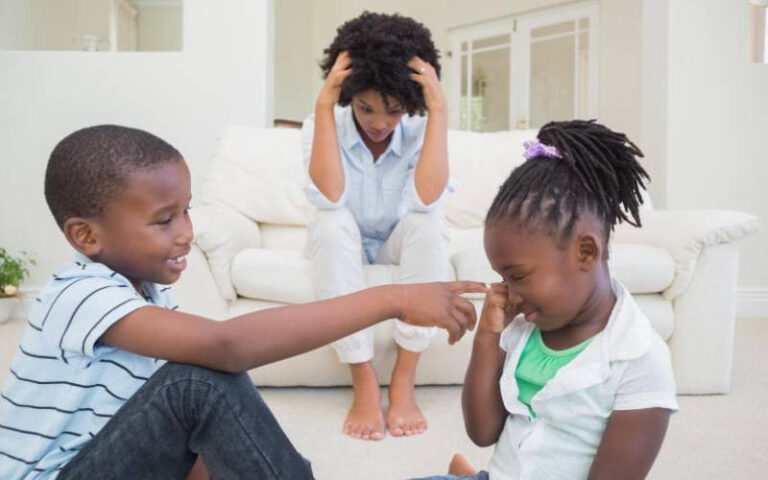Teaching our kids good values from a young age is like planting seeds for a happy family garden. When children learn important life lessons early on, it helps create a strong and loving family that sticks together through thick and thin.
Think about it: the things we learn as kids often become the building blocks of who we are as adults. This is especially true when it comes to how we handle disagreements and relate to our family members. By teaching our children positive values, we’re giving them tools they’ll use for the rest of their lives to build and maintain strong family bonds.
Sibling Rivalry and Emotional Maturity
Let’s face it, brothers and sisters don’t always get along perfectly. It’s normal for siblings to have their squabbles and competitions. But here’s where emotional maturity comes into play – it’s like a superpower that helps kids (and adults!) manage these rivalries in a healthy way.
As parents, we play a big role in this. When we show our kids how to handle our own emotions and conflicts calmly and kindly, we’re teaching them by example. Our little ones are always watching and learning from us, so when they see us being emotionally mature, it helps them learn to do the same with their siblings.
Favoritism: A Root of Discord
Playing favorites is a big no-no in parenting. It’s like planting weeds in our family garden – it can cause a lot of hurt feelings and long-lasting problems between siblings. Remember the story of Joseph in the Bible? His father’s obvious preference for him caused so much jealousy among his brothers that they actually sold him into slavery!
While we might naturally click more with one child’s personality, it’s super important to treat all our children fairly and with equal love and attention. Even if we do have private thoughts about favorites, keeping those to ourselves can help prevent a lot of family discord down the road.
Education as an Equalizer
Education can be a powerful tool in creating harmony among siblings. When all children in a family have access to good education, it helps level the playing field and can prevent feelings of “Why does he or she get to do that and I don’t?”
Encouraging all our kids to pursue learning and achieve their educational goals can foster understanding between them. It gives them common ground and shared experiences, which can be really helpful when they’re working together on family matters as adults.
Conflict Resolution Skills
Teaching our kids how to work out their differences from an early age is like giving them a valuable life skill that will serve them well into adulthood. When children learn to listen to each other, express their feelings calmly, and find compromises, they’re building a foundation of trust and understanding with their siblings.
These skills don’t just disappear when they grow up. The trust and understanding they build as kids can help prevent small disagreements from turning into big family feuds when they’re adults. It’s like they’re practicing for future challenges in a safe, loving environment.
The Role of Regular Family Deliberations
Having regular family meetings might sound a bit formal, but it can be a great way to keep everyone on the same page. These don’t have to be stuffy affairs – they can be casual chats over dinner or during a family game night.
The important thing is that everyone gets a chance to speak and be heard. It’s a time for each family member to share what’s on their mind, celebrate successes, and work through any issues together. This practice helps everyone recognize their own strengths and how they can contribute to the family’s wellbeing.
The Matriarch’s Influence on Family Unity
Moms often play a special role in keeping the family together. Their love and care can be like the glue that holds everything in place. The way a mother shows empathy, kindness, and understanding can set the tone for how siblings treat each other.
A mother’s nurturing presence can help create a warm and loving home environment where kids feel safe to be themselves and work out their differences. This doesn’t mean dads aren’t important too – both parents contribute to family harmony in their own unique ways.
Building Capacity for Future Family Needs
As parents, one of our jobs is to prepare our kids for the future, including future family responsibilities. This means teaching them not just practical skills like cooking or managing money, but also emotional skills like empathy and teamwork.
By helping our children develop these capacities, we’re ensuring that our family values and traditions can continue into the next generation. It’s like we’re passing the baton, giving our kids the tools they need to keep the family strong and united even as they grow up and start their own families.
Remember, every family is unique, and there’s no one-size-fits-all approach to creating family unity. The most important thing is to lead with love, patience, and understanding as we guide our children towards becoming caring, responsible adults who value their family bonds.

